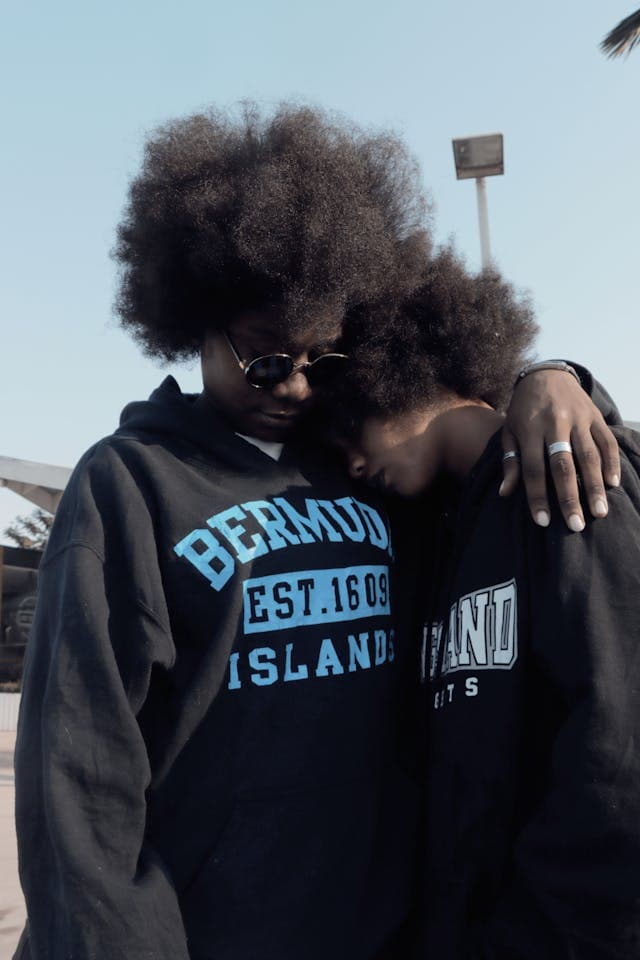Depression is one of the most common mental disorders in the world. It involves a persistent feeling of sadness and a loss of interest in everything. These feelings may interfere with daily life and productivity.
Side note: being sad doesn’t mean you’re depressed. There are many differences between depression and sadness.
It might be hard to know if your friend is depressed because depression has no physical signs. In fact, chronically depressed people can be the life of the party or the funniest and most vibrant people you’ve ever met!

It might be tricky to figure out peoples’ true feelings by their outward appearances, but you can look out for some telltale signs of depression. A depressed person would show symptoms like:
- a loss of interest in things they usually find pleasurable (anhedonia)
- an inability to focus
- change in eating habits — loss of appetite or binge-eating
- change in sleeping habits — insomnia or hypersomnia (over-sleeping)
- persistent feelings of sadness
- sudden withdrawal from social events
- physical pain with no obvious causes
- increased fatigue
- anxiety
What should you do if you’ve observed any of these signs and think your friend is depressed?
Start up a conversation
Everyone experiences down times, and it’s great to be there for your friends, but it’s safe to be sure you’re not making a mountain of a molehill. They may be withdrawing from social activities because they’re having a bad day. They may find it hard to focus because they’ve not been sleeping well.
So, start an objective conversation to confirm your observations, but don’t be pushy or questioning. For instance, “Hey, you seem a little down lately. Is everything okay?’ Ease into the conversation and make it about them.
Don’t force them if they don’t want to talk about it. Remember: the conversation is not about you. Just reassure them that you’re there for them and willing to listen whenever they’re ready to talk.
On the flip side, if they decide to talk about their feelings, don’t be quick to jump in and offer unsolicited advice. Instead, ask them what they need, like, “I’m here for you. Do you need advice, reassurance, or just want me to listen?”
Also, listen actively and don’t judge. This is about your friend and not you.
Suggested read: How to book for a couple’s therapy session on Mytherapist.ng
Study more on depression
This is one of the best ways to help a friend with depression. Knowing what depression entails will help you better understand your friend and support them in ways that matter. So, read everything about depression — its causes, types of depression, and how to deal with it.
Support them in seeking help
If you find out that your friend is depressed, help them seek help from a mental health professional. Make them understand that going to therapy doesn’t mean they’re insane or weak, and reassure them that they have your support.
By the way, therapy isn’t like taking Paracetamol for a headache. A therapist won’t snap their finger and cure depression instantly. Instead, therapy will help them understand what they’re experiencing and how to cope.
So, help them find a good therapist that meets their needs. Platforms like mytherapist.ng can help you connect with qualified therapists.
And if they want to quit for whatever reason, be there to encourage them that therapy is worth it and they have your support all the way.
Watch out for signs indicating worsening depression
Even if your friend is getting help, watch closely for any indicators of their mental health worsening. For instance:
- constant talks of death and dying
- suicidal ideations. i.e. constant talks of suicide
- constant withdrawal from people
- substance abuse (e.g., sleeping pills, prescribed drugs, or hard drugs)
- purchasing a gun
- saying goodbye with more feeling than usual
- giving out belongings with no reasonable explanations
- incessant mood swings
Stay in touch
A depressed person may avoid reaching out to anyone, even people they care about. And it can be difficult to deal with someone who may not even want you in their space, so make it your duty to take the mountain to Mohammed instead.
Check in on them constantly. Even if you can’t be physically around all the time, thoughtful texts and constant calls would go a long way.
Don’t get tired of supporting or reassuring them that you’re there for them, too. They may withdraw or shut you out, but be positive and supportive. Understand that they may be unable to reciprocate your feelings, so love for two.
Radiate warmth, safety, and positivity. They’ll eventually come around.
Suggested read: Understanding Mindfulness-Based Therapy: A Valid Path to Mental Wellness.
Takeaway
Everyone needs a strong support system, especially people dealing with mental health issues. If your friend is depressed, be there for them in every way. Your constant support and encouragement will make them feel heard and loved. It might get hard, but be patient and positive. It’ll all be worth it in the end.
If you need help connecting with a good therapist, don’t hesitate to reach out to us.
Effects of Affirmation Items on Mental Health.
Next article7 Practical Ways to Tackle Negative Thoughts.









